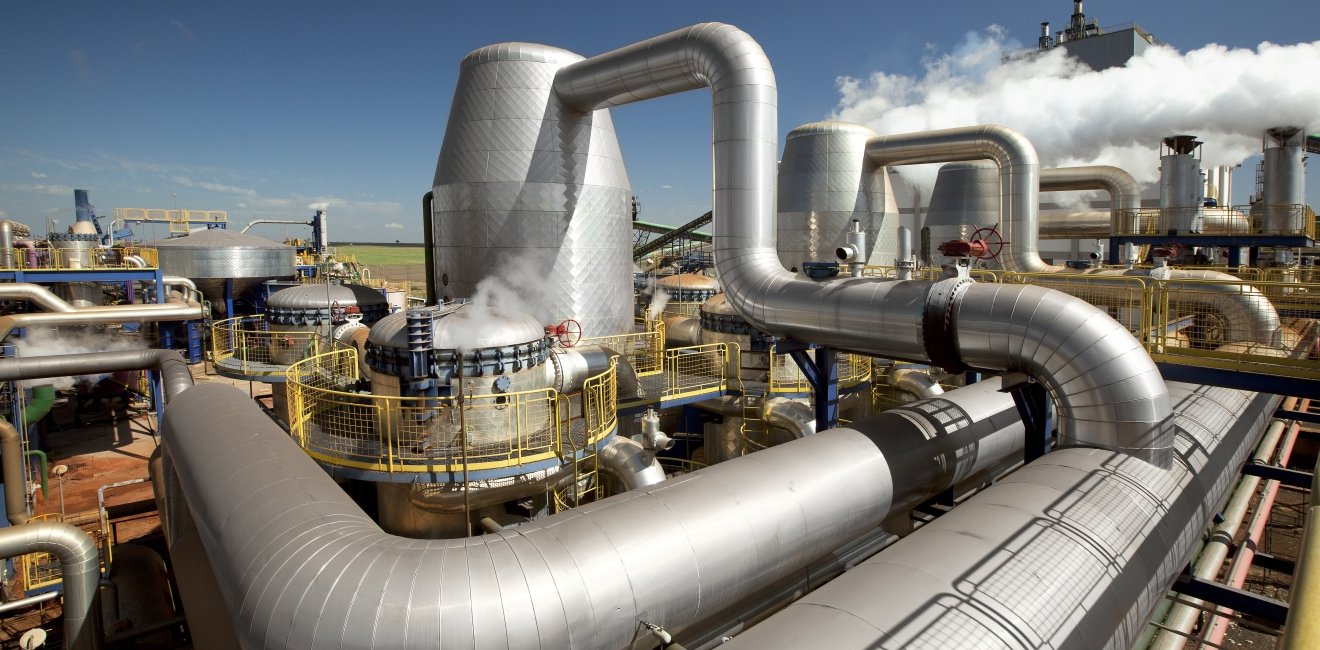
A blog of the Brazil Institute
The past few weeks have been disruptive for the energy sector in Brazil—one of the country's most strategic sectors. The energy landscape has been rocked by a series of recent events, including the announcement of a new plan to promote a sharp drop in gas prices, Petrobras' discoveries of major oil and gas reserves in Sergipe, and the privatization of BR Distribuidora—Brazil’s largest fuel distributor—as the first of many anticipated divestments.
The measures are part of Economy Minister Paulo Guedes’ plan to make Brazil more competitive by way of what he calls a “shock of cheap energy,” which he believes will benefit industry—such as steel and aluminum production, and the manufacturing of chemicals, ceramics, glass, paper and more. The idea is to provide better conditions for investments and thus create a more sustainable growth cycle, instead of going all-in on consumption as a solution to spur growth, which was the go-to strategy of previous administrations.
The agenda is ambitious. Guedes’ goal is to break Petrobras’ monopoly across the entire energy sector and boost competition in a bid to lower gas and fuel prices. For oil derivatives, such as gasoline, this will be done by loosening Petrobras’ control on refining and reducing its share in distribution chains—a step kickstarted by the privatization of BR Distribuidora. For the gas sector, this will be achieved through the government’s New Gas Market program, which calls for additional production, regulatory changes, and further investments in infrastructure that are expected to slash prices by 40 percent over the next two years.
“We believe the impact of re-industrialization may reach 8 percent of the GDP in 10 years ... We’re working to re-industrialize the Brazilian economy through cheap energy,” said Mr. Guedes, upon launching the natural gas program.
Other government officials have similarly stressed the importance of reshaping the energy sector in Brazil. Décio Oddone, the Director-General of the National Petroleum, Natural Gas and Biofuels Agency (ANP), affirmed in a recent speech that “for the first time, there is a structured set of actions that address the issue of competition in the sector.” Oddone went even further, however, in arguing that Brazil should not “waste the opportunity to responsibly use the resources resulting from oil and gas production for the benefit of society,” in large part through supporting the transition to a low carbon economy already underway in Brazil.
Undoubtedly, the potential is enormous for the entire energy generation and consumption chain in Brazil. But experts consulted by The Brazilian Report point out that, while the rewards are great, the journey to reach them will be neither easy nor fast.
Rome Wasn’t Built in a Day
In the case of the New Gas Market program, the weak link is construction. This phase of the plan will be tackled on two fronts: increasing pipeline networks and building exploitation projects that will produce more gas.
According to Mines and Energy Minister Bento Albuquerque, Brazil has only 9,400 kilometers of gas pipelines. Argentina, meanwhile, has just one-third of Brazil’s landmass but has 29,000 km of pipelines. Given that Brazil’s production comes from the sea, these are complicated construction projects that could take up to three years to be concluded, explains Anton Schwyter, from energy consultancy Thymos Energia.
To speed up this process, Brazil’s antitrust watchdog has reached a deal with Petrobras. The state-owned energy company pledged to provide free access to the entire pre-existing infrastructure for natural gas, as well as divesting its remaining 10-percent stakes in assets such as gas distributors TAG and NTS. As Petrobras and TAG—which owns a 4,500-kilometer pipeline network—had agreed that Petrobras could continue to use TAG’s distribution services, under the terms of to the transportation contracts signed prior to TAG’s sale, there was concern that the de facto monopoly would remain.
Ramping up Offshore Production
The recent discovery of gas fields in Sergipe and Alagoas could produce up to 20 million cubic meters of natural gas per day, and has become another big wager to give natural gas a more relevant role in Brazil's energy matrix. Again, Mr. Schwyter expects it will take years before Petrobras’ offshore platforms begin pumping oil and gas from the deepwater reserves.
“There has to be a mapping of the area, an assessment of its size—and then you have to create distribution channels to bring the production to the shore. You may build the gas pipelines simultaneously, but I believe it will also take up to three years, because you have to do a project, file for environmental permits,” he said.
But as Carlos Daltozo, head of variable income of Eleven Financial research highlights, the industry works on a different cycle. Its investments are more based on long-term scenarios than other sectors of the economy. Although he praised the government program as a relevant signal to boost confidence, he believes it is necessary to provide further incentives.
“The funding structure for these investments has to be addressed. Will [Brazil's National Development Bank] take it over, as it did in the past, or will there be incentives for banks, for capital markets, for corporative bonds? There’s a lot of fronts yet to be addressed,” he points out.
Electric Shockwaves
Although industry is the main target of the New Gas Market, the project may have deeper effects on the country’s energy generation. This is because gas may also be used to generate electricity in thermoelectric power plants. Currently, this is the most expensive model and is used only when cheaper sources, such as hydroelectric, fail.
Hydroelectric energy has been the most important model for energy generation in Brazil for decades, but its share of the electricity matrix has been dropping—from almost 90 percent in 2002 to nearly 60 percent in 2019. Part of this reduction is due to an increase in other sources, such as solar and wind power, but the system has also been affected by the drier climate.
“With the sluggish economic activity and climate changes, thermoelectric power plants have been using more natural gas than industry has. This source of generation will also benefit if gas prices fall,” explains Mr. Schwyter.
Looking ahead, gas may pose an advantage for another challenge facing Brazil: negotiations with Paraguay over the Itaipu dam. The binational power plant accounts for 15 percent of the energy consumed in Brazil and 90 percent in Paraguay. The neighboring country is entitled to 50 percent of the overall energy generated, but uses only 14 percent and sells the rest back to Brazil.
“If Paraguay decides to sell 84 percent of its energy on the free market, that could cause a rupture in the Brazilian energy market. Gas is an alternative to foster competition, it boosts the opening of the transporting market and may avoid a problem with Itaipu,” said Mr. Daltozo.
The terms of the current deal will expire in 2023 and negotiations are becoming increasingly tense. Last week, both countries were forced to cancel an agreement established in May that changed the rules for energy purchasing after Paraguay’s president, Mario Abdo Benítez, was threatened with an impeachment process. In broad terms, the deal would have required Paraguay to pay an extra $200 million for the energy, as part of a review of the prices agreed in 2007.
Increasing Privatizations
The recent privatization of fuels distributor BR Distribuidora was another major step towards breaking Petrobras’ monopoly. The energy giant sold nearly half of its shares in the distribution company, raising a much-needed R$9.6 billion ($2.4 billion) boost to its divestment and debt-reducing plan.
However, that does not mean the company will be completely free of political interference, as Petrobras remains BR Distribuidora’s biggest shareholder, with a 37.5-percent stake. For Mr. Daltozo, the company will be leaner and more agile, “but government interference will continue.” In his view, there’s little upside for BR Distribuidora’s shares, which have risen 10 percent after the follow-on offer was announced.
“The market has priced the company’s better margins on Q1, so now, as a private company, we see room for cost-cutting only. We also see a more adverse competitive scenario, even though it will reap the benefits of becoming a pulverized capital company and reducing costs,” said Mr. Daltozo.
BR Distribuidora and TAG are just the first of Petrobras' assets up for sale. Next in line is gas distribution company Liquigás. Petrobras has already tried to sell it to Ultragaz, of Grupo Ultra, but the deal was blocked by antitrust authorities. Considering the concentration of the market, both specialists see a chance that foreign players will take an interest in the asset.
Regulation Matters
As usual in Brazil, tangled regulation can be a stubborn roadblock. As seen in other pivotal sectors, the gas supply chain is regulated by different agencies and levels of government: exploration and production, for example, are federal matters, but distribution is decided at a state level.
“Each state has an agency to regulate gas distribution companies. A large part of these are state-owned, but there has been news about potential privatizations. The concession is given by the states and the rest is regulated on a federal level. Sometimes the regulations do not always complement each other. Each state also charges different tax rates. That has to be arranged,” said Mr. Schwyter.
He also praises the government’s efforts in integrating all administration levels on the Natural Gas Market Opening Monitoring Committee, which can boost the effort to integrate federal, state, and municipal government. But he highlights that these efforts to reduce the price for final consumers cannot be fulfilled without a close follow-up on the bottom of the chain.
Like the content? Subscribe to the Brazilian Report using the discount code BI-TBR19 to get 20 percent off any annual plan.
Author

Brazil Institute
The Brazil Institute—the only country-specific policy institution focused on Brazil in Washington—aims to deepen understanding of Brazil’s complex landscape and strengthen relations between Brazilian and US institutions across all sectors. Read more

Explore More in Brazil Builds
Browse Brazil Builds
They're Still Here: Brazil's unfinished reckoning with military impunity




